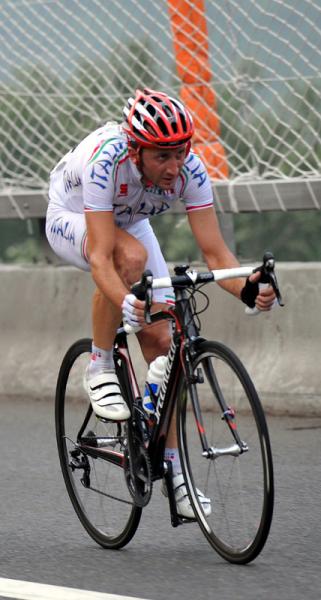CAS rejects Rebellin's appeal
Italian's 2008 Olympic disqualification stands

The Court of Arbitration for Sport (CAS) dismissed the doping case appeal filed by the Italian cyclist Davide Rebellin against the decision of the Executive Committee of International Olympic Committee (IOC) on Friday. The IOC had disqualified Rebellin from the 2008 Olympic Games and withdrew his silver medal, and with this ruling CAS upheld the decision.
Rebellin's sample from August 5, 2008, during the Olympic Games, eventually tested positive for EPO CERA. On August 9, 2008, he took part in the cycling road race in which he finished second. On November 17, 2009, the IOC issued a decision disqualifying him based on results from the testing of the August 5 sample.
The IOC's decision came after a series of tests. The subsequent analysis of the "A" blood sample was found negative for the presence of growth hormones. Then, in January 2009, the IOC decided to submit the samples collected during the 2008 Olympics for tests to detect the presence of EPO CERA. His "A" sample turned up positive in initial testing, which was analyzed more completely then by the anti-doping laboratory Châtenay-Malabry (France), which helped to formally establish the presence of CERA in Rebellin's blood sample.
In May 2009, the analysis of the "B" sample confirmed analysis of sample "A". The IOC's disqualification followed, then Rebellin appealed it on November 30, 2009. He also asked that the IOC's request to have the UCI change the official results of his test be denied.
The case was submitted to a formation of CAS arbitrators composed of Bernard Foucher of France, Michele Bernasconi of Switzerland and Prof. Ulrich Haas of Germany. A hearing was held at the CAS in Lausanne June 17, 2010, during which the parties, their counsel and several experts were heard.
CAS noted that in his defense, Rebellin cited several flaws regarding the analysis procedure samples and challenged the validity of the method used by the laboratory of Châtenay-Malabry. However, CAS rejected all of the rider's arguments and confirmed that procedures were properly followed and did not differ from those of the international standards for laboratories (ISL).
In addition, CAS confirmed that the presence of CERA had been validly detected in samples of the rider's blood and that the laboratory of Châtenay-Malabry had applied a method of detection already validated internally, in accordance with ISL, at the time of analysis.
The latest race content, interviews, features, reviews and expert buying guides, direct to your inbox!
